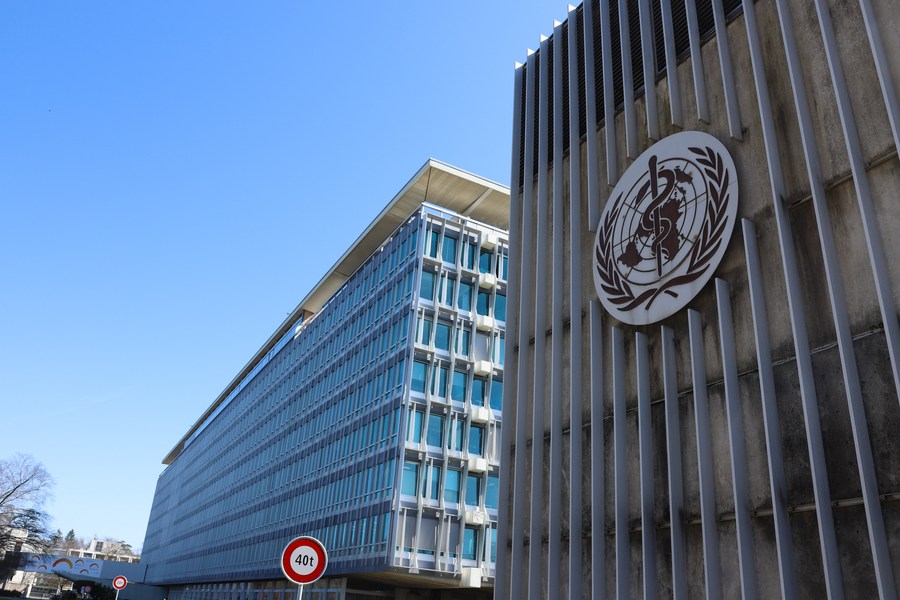
Photo taken on March 30, 2021 shows an exterior view of the headquarters of the World Health Organization (WHO) in Geneva, Switzerland. (Xinhua/Chen Junxia)
The WHO said most of the excess deaths, or 84 percent, were concentrated in South-East Asia, Europe and the Americas.
The global death toll was higher for men (57 percent) than for women (43 percent) and higher among older adults.
GENEVA, May 5 (Xinhua) -- The World Health Organization (WHO) said on Thursday that almost 15 million deaths globally were directly or indirectly associated with the COVID-19 pandemic by the end of 2021.
According to the WHO's estimates, the full COVID-19 death toll, or "excess mortality," was approximately 14.9 million between Jan. 1, 2020 and Dec. 31, 2021. This figure is calculated as the difference between the number of deaths that have occurred and the number that would be expected in the absence of the pandemic based on data from earlier years.

White flags honoring the lives lost to COVID-19 are seen on the National Mall in Washington, D.C., the United States, on Oct. 2, 2021. (Xinhua/Liu Jie)
Aside from the deaths directly caused by COVID-19, the "indirect deaths" were attributable to other health conditions for which people were unable to access prevention and treatment, because health systems were overburdened by the pandemic.
The WHO said most of the excess deaths -- 84 percent -- were concentrated in South-East Asia, Europe and the Americas, and some 68 percent in just ten countries globally. Middle-income countries accounted for 81 percent of the 14.9 million excess deaths, while high-income and low-income countries each accounted for 15 and 4 percent, respectively.

A woman draws a red heart on the National COVID Memorial Wall in London, Britain, Aug. 9, 2021. (Xinhua/Han Yan)
The global death toll was higher for men (57 percent) than for women (43 percent) and higher among older adults.
"These sobering data not only point to the impact of the pandemic but also to the need for all countries to invest in more resilient health systems that can sustain essential health services during crises, including stronger health information systems," WHO Director General Tedros Adhanom Ghebreyesus said in a statement. ■












